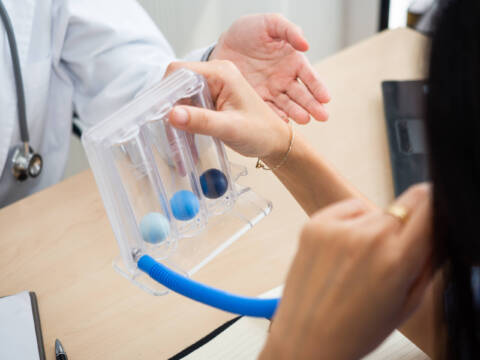Opportunities for LPNs to Specialize in Specific Areas of Healthcare
One of the perks of entry-level positions within the greater healthcare field is career flexibility. Some types of medical professionals – especially nurses – play roles in virtually every type of healthcare facility and practice area. As an entry-level position, licensed practical nurses (LPNs) are able to gain specialized knowledge in a wide variety of fields. LPNs interact one-on-one with patients daily, monitoring their health, and coordinating care with other healthcare professionals. Gaining specialized experience can lead to higher earning potential, increased job prospects, improved job satisfaction and greater eligibility for leadership positions. At St. Louis College of Health Careers, we give our students a thorough foundation of knowledge and skills that puts them in an ideal position to acquire specialized experience when they enter the workforce. This empowers our nurses to stand out in their field so they can pursue their ideal career. LPNs with this specialty work exclusively with older patients, providing specialized care in nursing homes, memory care and assisted living facilities and home healthcare settings. Those interested in this , including geriatrics, long-term care, IV therapy, life support and hospice and palliative care. LPNs can choose to specialize in pediatric care, addressing the unique healthcare concerns of children and infants. Nurses pursuing this specialization may benefit from obtaining their Certified Pediatric Nurse (CPN) certification and potentially a , depending on the position. An oncology specialization gives LPNs the opportunity to focus on patients undergoing cancer treatments, assisting with symptom management related to chemotherapy as well as other physical and emotional issues. Although oncology employers tend to favor RNs over LPNs, you may still be hired if you’ve demonstrated notable expertise in the field or have earned a Certified Oncology Nurse (OCN) certification. If you want to focus on children with cancer, you may need a pediatrics specialization with a Certified Pediatric Hematology Oncology Nurse (CPHON) certification. Surgical LPNs are right in the operating room, assisting surgeons during surgical procedures. They’re responsible for preparing the room for surgery, sterilizing equipment and ensuring patient safety. Due to the high-pressure working environment, LPNs with a surgical nursing specialty must have Certified Nurse Operating Room (CNOR) and Acute/Critical Care Nursing (CCRN) certifications. Some LPNs work exclusively with orthopedic surgeons to care for musculoskeletal issues and disorders, such as tendinitis and carpal tunnel syndrome. They work personally with patients to manage symptoms and help them recover after operations. These LPNs tend to work in orthopedic clinics, rehabilitation centers and surgical units. Although nursing in orthopedics doesn’t require a specific specialization, acquiring certifications in wound care, pharmacology and geriatrics can prove valuable, enhancing a nurse’s knowledge of medications and musculoskeletal decline. LPNs specializing in dermatology focus on assessing skin issues, administering treatments and occasionally assisting with minor wound care surgeries. Depending on the position, some LPNs may need certifications in wound care and pharmacology to pursue this path. Long-term care (formerly known as gerontology) allows LPNs to care for elderly or chronically ill patients in nursing homes, rehabilitation centers and skilled nursing facilities. Training includes learning how to effectively administer medications and manage proper dietary plans as well as coordinate treatments with other healthcare professionals. This specialization typically requires students to acquire certifications in long-term care, geriatrics and hospice and palliative care. A hospice and palliative care specialization gives LPNs the knowledge and tools to administer end-of-life care for terminally ill individuals and their families, offering physical and emotional support. LPNs interested in pursuing this important but emotionally demanding specialization may benefit from certifications in long-term care and hospice and palliative care. The at St. Louis College of Health Careers provides thorough training that equips students with the knowledge they need to pursue a fulfilling medical career. Our program molds students into skilled nurses who are well-prepared to hit the ground running the moment they’re hired. You’ll learn from experienced faculty with a focus on hands-on training and clinical experience to build up your ability to diagnose and implement treatments. The education provided at St. Louis College of Health Careers can help you transition from an LPN to an RN, with access to higher managerial positions and more complex specializations like . We offer fully online programs so you can advance your career conveniently and at your own pace. Gain a superior understanding of your field. Call 866-529-2070 today to learn more about our program and .





